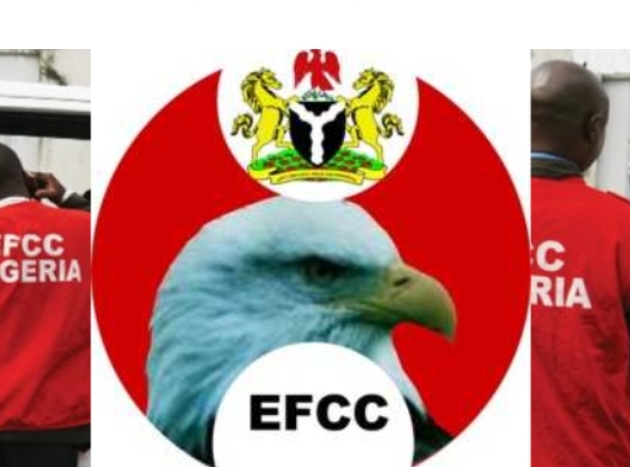The Economic and Financial Crimes Commission (EFCC) has recently made headlines by arraigning Aisha Wakil, commonly known as ‘Mama Boko Haram,’ along with two co-defendants, Tahiru Saidu Daura and Prince Lawal Shoyode, on charges relating to a staggering N150 million fraud.
This article delves into the intricacies of this case, shedding light on the charges and the courtroom proceedings.
In a move that has garnered substantial public attention, the EFCC has taken legal action against Aisha Wakil, Tahiru Saidu Daura, and Prince Lawal Shoyode.
The charges brought against them are two-fold, revolving around allegations of conspiracy and cheating, involving a substantial sum of N150,000,000.00 (One Hundred and Fifty Million Naira).
This high-profile case unfolded before Justice Umaru Fadawu of the Borno State High Court, Maiduguri.
Aisha Wakil, Tahiru Saidu Daura, and Prince Lawal Shoyode were all arraigned before the court to answer to these grave charges.
In a courtroom drama that gripped the nation’s attention, all three defendants entered a plea of ‘not guilty’ in response to the charges levelled against them.
This plea sets the stage for a legal battle of substantial significance.
The charges brought against ‘Mama Boko Haram’ and her associates carry significant legal consequences.
If found guilty, they may face severe penalties, including imprisonment, fines, and more.
The outcome of this case will undoubtedly have far-reaching implications.
The Economic and Financial Crimes Commission, as the prosecuting body in this case, plays a crucial role in unraveling the truth behind the allegations.
Their relentless pursuit of justice is evident in their efforts to bring these charges to court.
News of this high-stakes legal battle has sparked intense public interest.
It has also raised questions about the complexities of the case, the individuals involved, and the larger implications for the fight against financial crimes in Nigeria.









